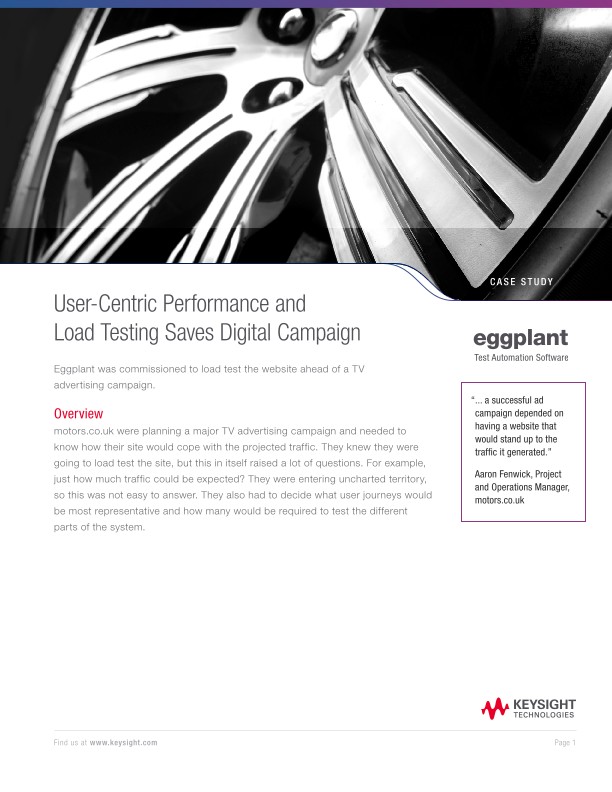
User-Centric Performance and Load Testing Saves Digital Campaign
Case Studies
Overview
motors.co.uk were planning a major TV advertising campaign and needed to know how their site would cope with the projected traffic. They knew they were going to load test the site, but this in itself raised a lot of questions. For example, just how much traffic could be expected? They were entering uncharted territory, so this was not easy to answer. They also had to decide what user journeys would be most representative and how many would be required to test the different parts of the system
Our Solution
motors.co.uk knew that a consistent, reliable load testing platform was critical, and Eggplant, with its access to Tier 1 connectivity and stable test environment, was the ideal candidate.
It targeted three key user journeys, starting from the homepage, the SEO campaign landing page and the news page. While motors.co.uk had a very capable web team, they weren’t experienced in load testing, and they therefore opted for a managed service from Eggplant.
During the planning phase, motors.co.uk worked closely with Eggplant to agree on parameters such as ramp-up time (the time it takes to build up to the total number of simulated users), think time (how long each simulated user remains on a page) and the number of simulated users per test.motors.co.uk also supplied Eggplant with datasets to allow the load testing agent to search for different makes of car and enter different postcodes.
Eggplant then tested the site in such a way that the number of users active at any one time and the overall length of the scenario were predefined. This method is typically used where, as here, the key factor is reaching and maintaining a certain number of concurrent users.
As well as load testing the selected pages, Eggplant also used its Performance Analyzer tool to crawl the entire site. This provided
• Information on the biggest, slowest, and worst performing pages.
• Details of render times and other key metrics.
• A filmstrip view of pages loading, as real users would see them.
• Recommendations for improving performance.
Results
Overall, the results were positive for motors.co.uk. They showed that the work they had put into preparing the site for the anticipated peaks in traffic had, for the most part, paid off
However, the testing process did pick up a number of errors and opportunities for further optimization. What’s more, the Performance Analyzer crawl meant that NCC Group experts were able to look at the entire site in detail and suggest improvements. Fortunately, motors.co.uk had planned well. They had scheduled in the testing phase early enough to act on the results. This meant they could make a number of front-end changes to help their site perform well during the campaign